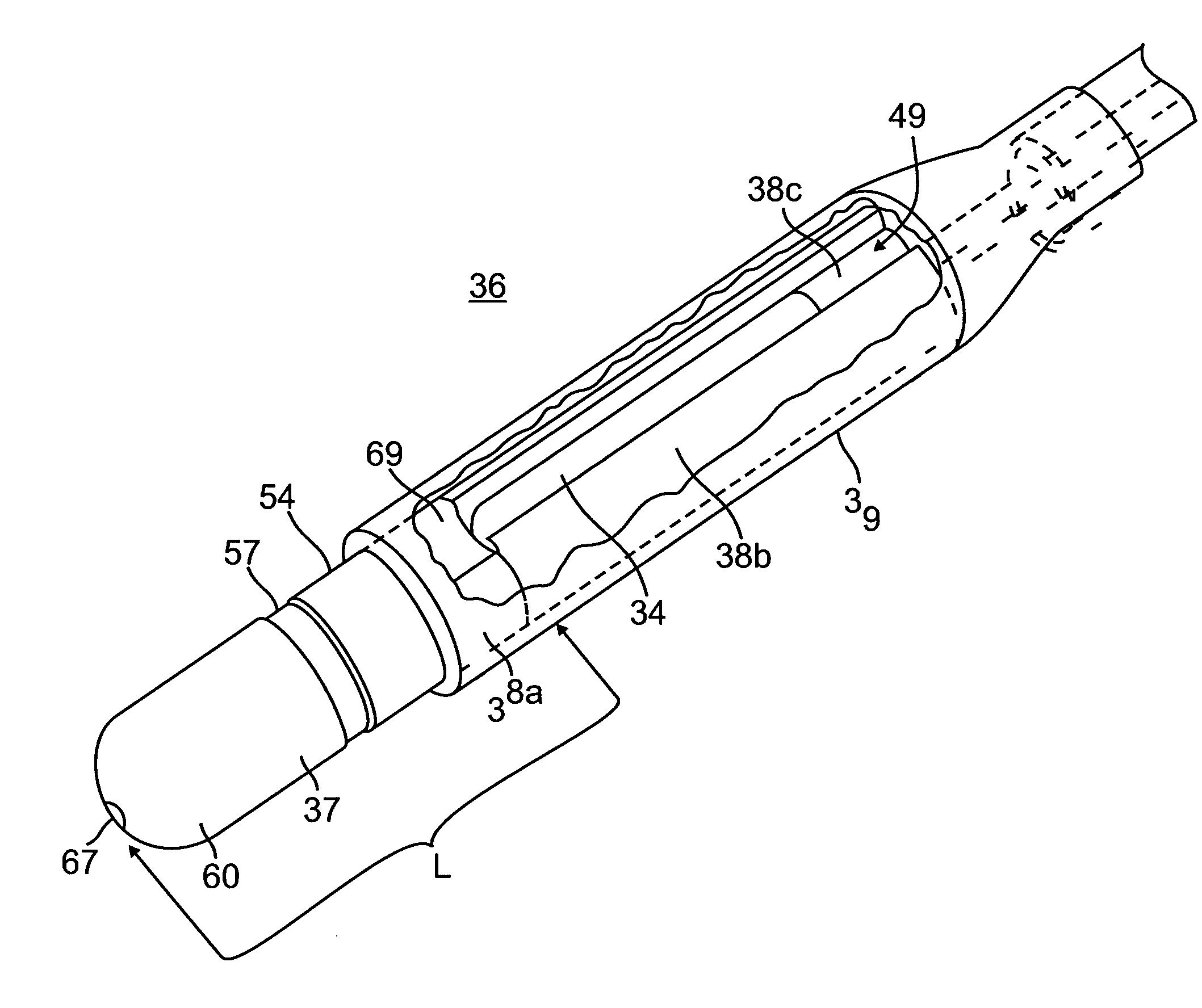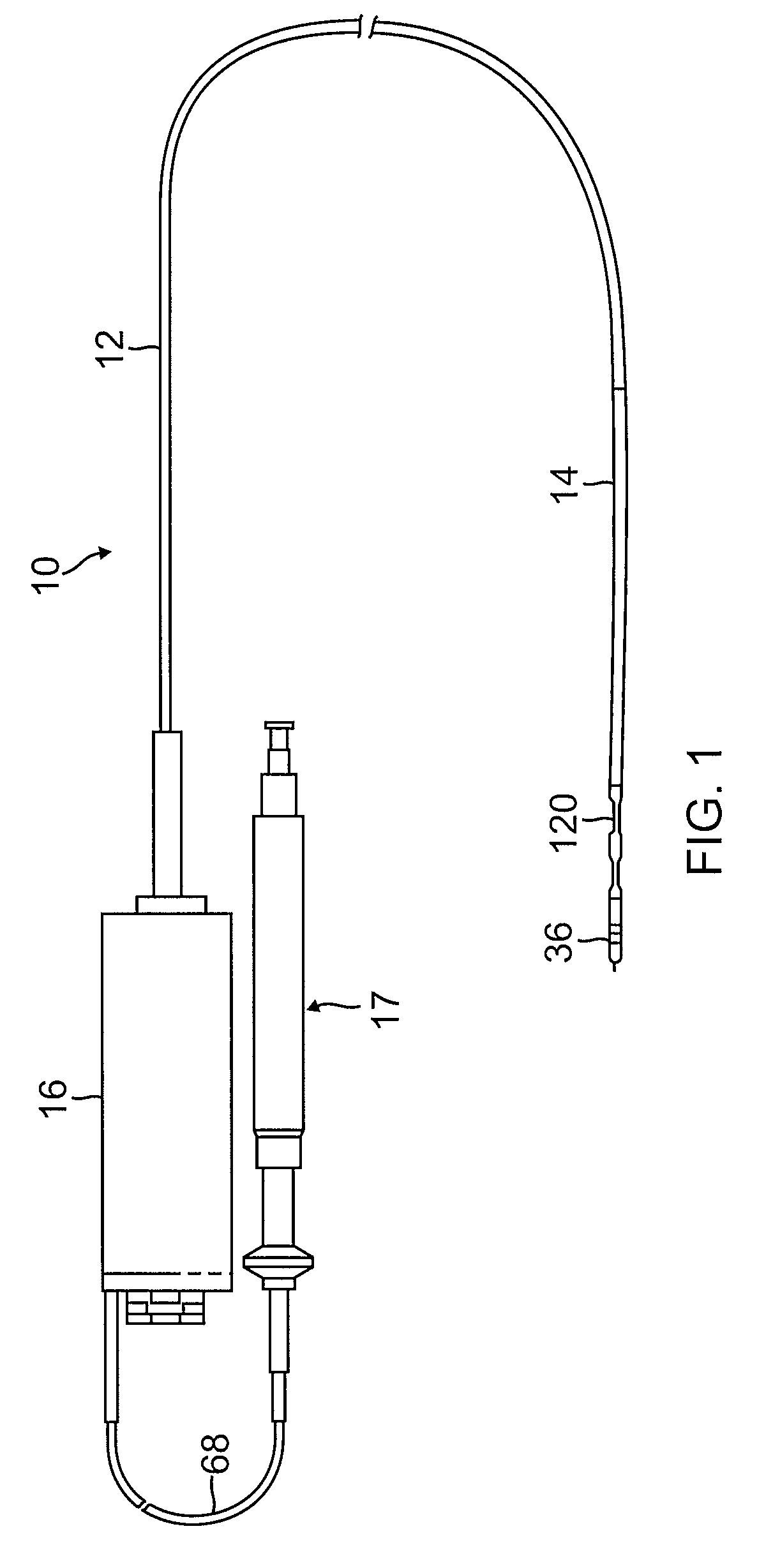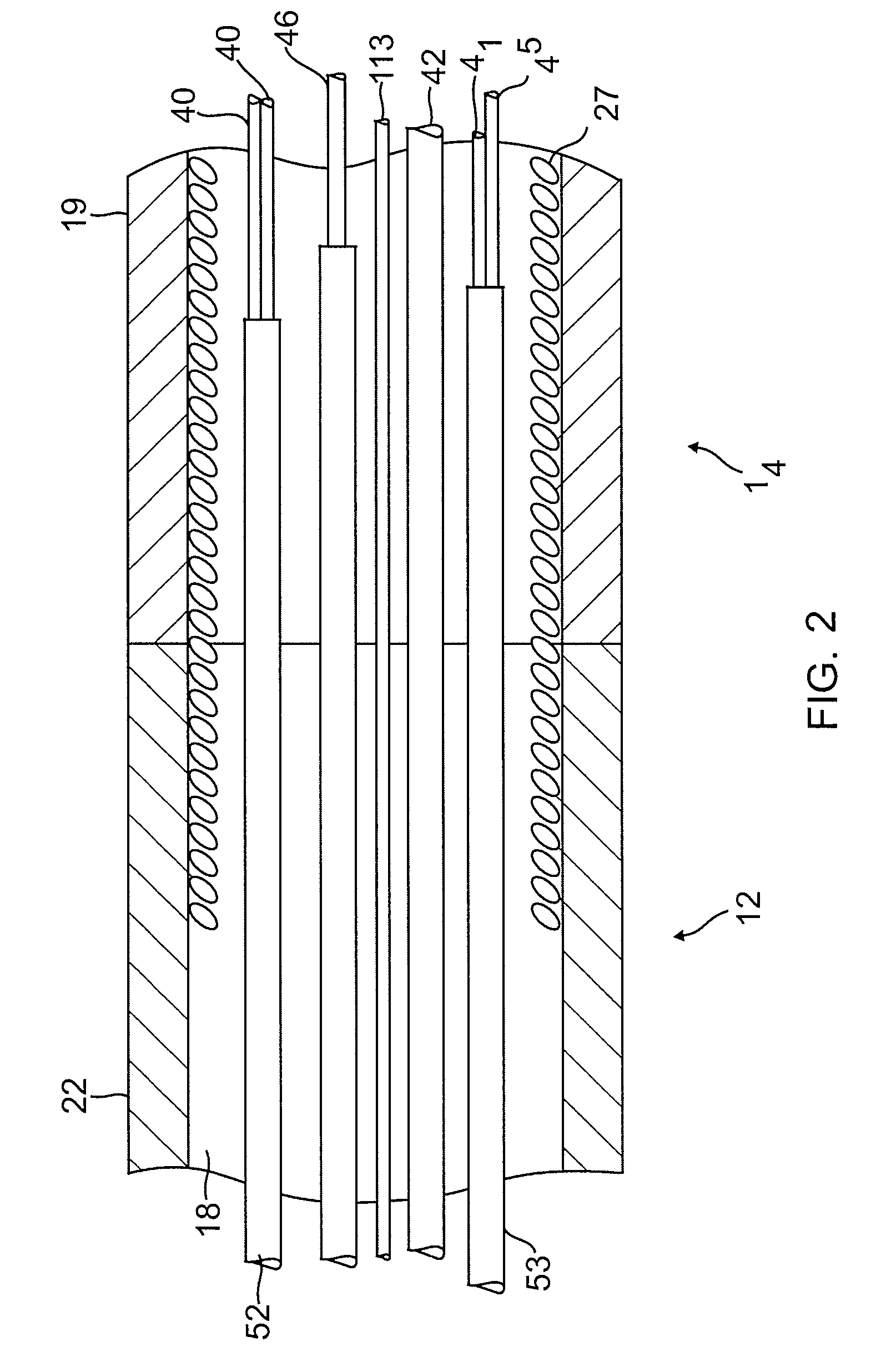Magnetically guided catheter with concentric needle port
a catheter tip and magnetic navigation technology, applied in the field of electrophysiology catheters, can solve the problems of difficult integration of catheter tip magnetic navigation, catheter tip lack of sufficient volume of magnetic material for adequate magnetic navigation and control, and difficulty in adequately deflecting the catheter without increasing the volume of magnetic material, etc., to achieve optimal tissue injection success and improve maneuverability and angulation
- Summary
- Abstract
- Description
- Claims
- Application Information
AI Technical Summary
Benefits of technology
Problems solved by technology
Method used
Image
Examples
Embodiment Construction
[0044]As shown in FIGS. 1-9, catheter 10 of the present invention comprises an elongated catheter body 12 having proximal and distal ends, a very soft and flexible intermediate section 14 at the distal end of the catheter body 12, a magnetically-maneuverable tip section 36 through which an injection needle 46 can be extended and retracted, a connection housing 16 at the proximal end of the catheter body and a needle control handle 17 proximal of the housing 16, by which a user can manipulate needle extension and retraction. In accordance with a feature of the invention, the tip section includes a tip electrode 37 for ablation and mapping, an electromagnetic position sensor 34 to provide location and orientation data, and a magnetic device 38 to facilitate magnetic navigation and control.
[0045]With reference to FIGS. 1 and 2, the catheter body 12 comprises an elongated tubular construction having a single, axial or central lumen 18. The catheter body 12 is flexible, i.e., bendable, b...
PUM
 Login to View More
Login to View More Abstract
Description
Claims
Application Information
 Login to View More
Login to View More - R&D
- Intellectual Property
- Life Sciences
- Materials
- Tech Scout
- Unparalleled Data Quality
- Higher Quality Content
- 60% Fewer Hallucinations
Browse by: Latest US Patents, China's latest patents, Technical Efficacy Thesaurus, Application Domain, Technology Topic, Popular Technical Reports.
© 2025 PatSnap. All rights reserved.Legal|Privacy policy|Modern Slavery Act Transparency Statement|Sitemap|About US| Contact US: help@patsnap.com



